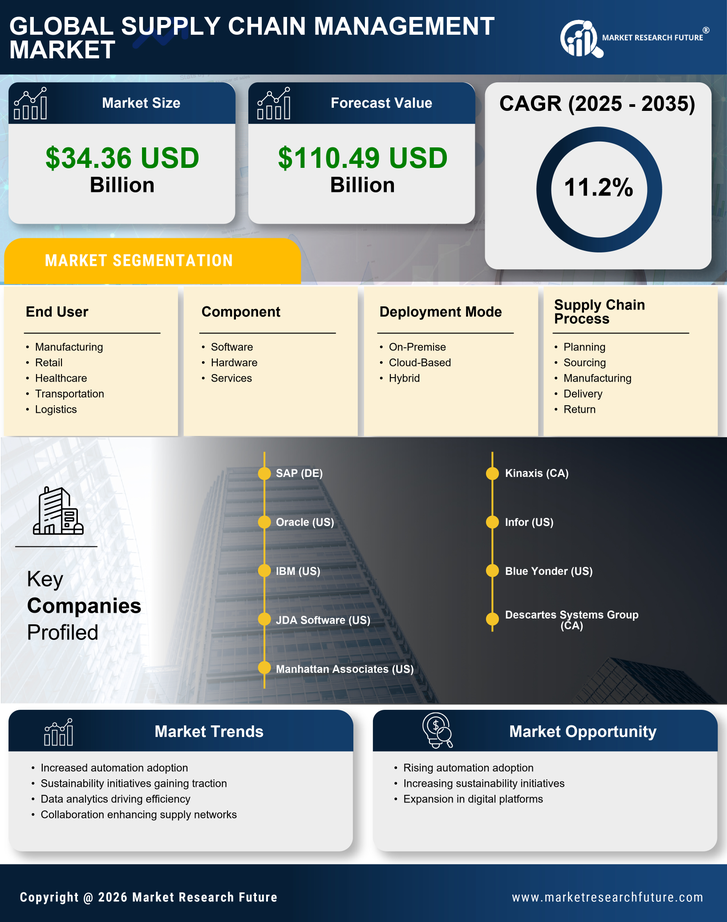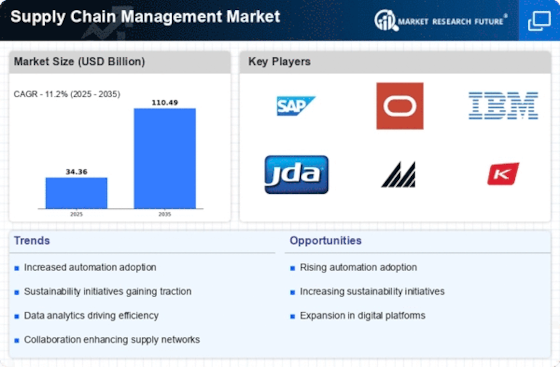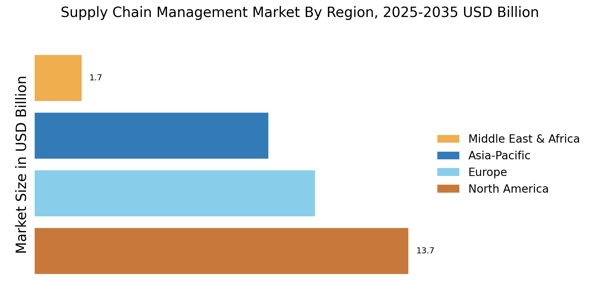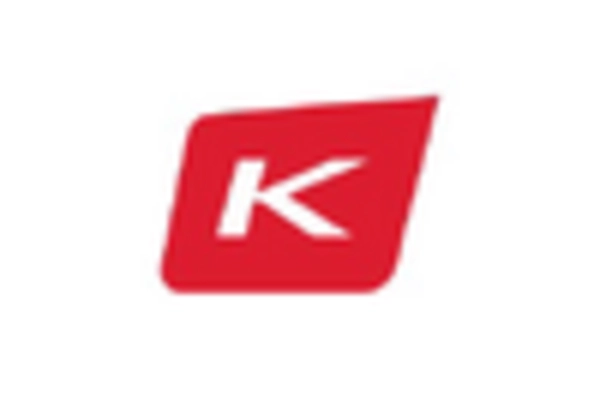E-commerce Growth
The rapid expansion of e-commerce is a pivotal driver for the Supply Chain Management Market. As online shopping continues to gain traction, businesses are compelled to enhance their supply chain strategies to meet consumer expectations for faster delivery and better service. Data indicates that e-commerce sales have seen a significant increase, with projections suggesting that they could account for over 20% of total retail sales in the near future. This shift necessitates the adoption of agile supply chain practices, including last-mile delivery solutions and efficient inventory management. Consequently, companies are investing in technologies that support these changes, thereby propelling the growth of the Supply Chain Management Market. The demand for seamless integration between online platforms and supply chain operations is likely to remain a key focus area.
Regulatory Compliance
Regulatory compliance is increasingly influencing the Supply Chain Management Market, as businesses must navigate a complex landscape of laws and regulations. Compliance with environmental standards, trade regulations, and safety protocols is essential for maintaining operational integrity and avoiding penalties. The need for transparency in supply chains has led to the implementation of stricter regulations, particularly concerning sustainability practices. Companies that proactively address these compliance requirements can enhance their reputation and build consumer trust. Moreover, the potential for fines and legal repercussions underscores the importance of robust compliance strategies. As regulations evolve, the Supply Chain Management Market is likely to adapt, with businesses investing in compliance technologies and practices to mitigate risks and ensure adherence.
Technological Advancements
The Supply Chain Management Market is experiencing a surge in technological advancements, particularly in automation and artificial intelligence. These innovations streamline operations, enhance efficiency, and reduce costs. For instance, the integration of AI-driven analytics allows companies to predict demand more accurately, thereby optimizing inventory levels. According to recent data, organizations that adopt advanced technologies in their supply chains can achieve up to a 30% reduction in operational costs. Furthermore, the rise of the Internet of Things (IoT) facilitates real-time tracking of goods, which enhances visibility and responsiveness. As businesses increasingly recognize the value of these technologies, the Supply Chain Management Market is likely to witness accelerated growth, driven by the need for improved operational capabilities.
Globalization of Supply Chains
The globalization of supply chains is a significant driver of the Supply Chain Management Market. As companies expand their operations across borders, they encounter new challenges and opportunities that necessitate sophisticated supply chain strategies. The interconnectedness of markets allows businesses to source materials and products from diverse regions, optimizing costs and enhancing competitiveness. However, this globalization also introduces complexities related to logistics, tariffs, and geopolitical risks. Data indicates that companies with well-structured global supply chains can achieve greater resilience and adaptability. As businesses navigate these complexities, the Supply Chain Management Market is likely to evolve, with an emphasis on developing robust The Supply Chain Management opportunities.
Consumer Demand for Sustainability
The growing consumer demand for sustainability is reshaping the Supply Chain Management Market. As awareness of environmental issues increases, consumers are favoring brands that demonstrate a commitment to sustainable practices. This trend compels companies to reevaluate their supply chain strategies, focusing on reducing carbon footprints and minimizing waste. Data suggests that businesses that prioritize sustainability can enhance their market position, as consumers are willing to pay a premium for eco-friendly products. Consequently, organizations are investing in sustainable sourcing, green logistics, and circular economy initiatives. The Supply Chain Management Market is likely to see a shift towards more sustainable practices, driven by both consumer preferences and regulatory pressures, which could redefine competitive dynamics.


















